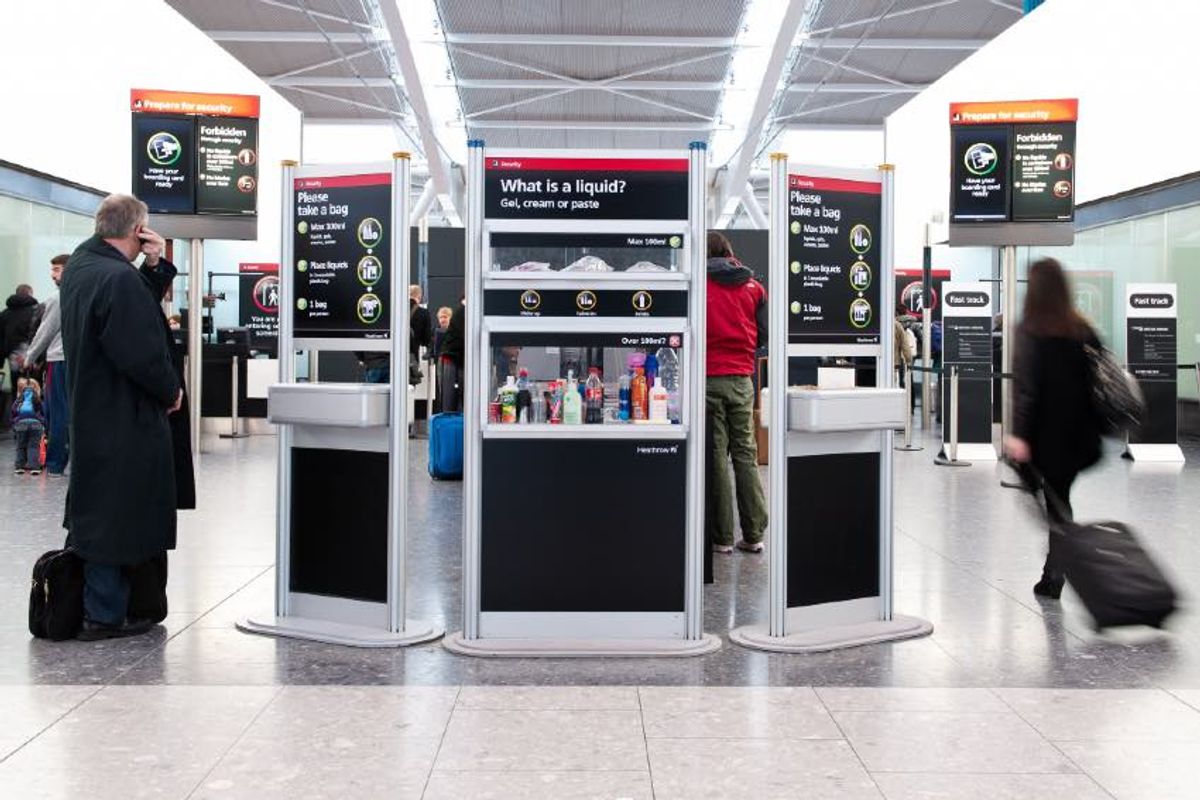UK airports told to reimpose 100ml liquids rule

Six regional UK airports have been told to temporarily reintroduce the 100ml liquids security rule by the UK government.
The airports – London City, Newcastle, Leeds Bradford, Southend and Teesside – have all completed the installation of Next Generation Security Checkpoints (NGSC) scanners, which has allowed them to end the long-running 100ml limit on liquids in passengers’ hand baggage rule.
But all six airports were forced to temporarily reimpose the liquids rule on Sunday (9 June) by the UK’s Department for Transport (DFT).
“This temporary move is to enable further improvements to be made to the new checkpoint systems and will only affect a small number of passengers,” said the DFT in a statement.
“For most passengers, security measures will remain unchanged. Passengers should continue to check security requirements with their departure airport before travelling.”
The DFT added that this move was being made as a “routine measure and not in response to a specific threat”.
The government had originally set a deadline of 1 June 2024 for all UK airports to install the new scanners. But this deadline was extended to June 2025 after larger airports such as London Heathrow, London Gatwick and Manchester expressed concerns about reaching the 2024 target.
As well as scrapping the 100ml limit, the introduction of the new scanners allows passengers to keep their liquids, laptops and tablets in their hand baggage when passing through security.
London City said in a statement that despite the reimposition of the 100ml rule, passengers could “still keep everything, including all liquids and large electronics, in their hand luggage when passing through security”.
Related
Calls for over 60 free bus travel update from Department…
Calls for free bus travel for those over the age of 60 in England is gaining more attention after an increase of support. Unlike those in Wales, Scotland, and N
Major UK train station is one of the worst places…
Pickpockets are a problem across the UK, but one place is the worst for having your belongings stolen. According to the British Transport Police (BTP), just und
UK Snow Travel Chaos: Kent, East Sussex, West Sussex, Hampshire,…
UK Snow Travel Chaos: Kent, East Sussex, West Sussex, Hampshire, Wiltshire, Surrey, Berkshire, Greater London, Essex, Suffolk, Hertfordshire,
‘Only travel if necessary’ warning as UK’s busiest motorway shut…
NATIONAL Highways have issued an urgent warning to drivers as one the UK's biggest motorways shuts for the weekend. They has urged drivers to re-plan their rou











